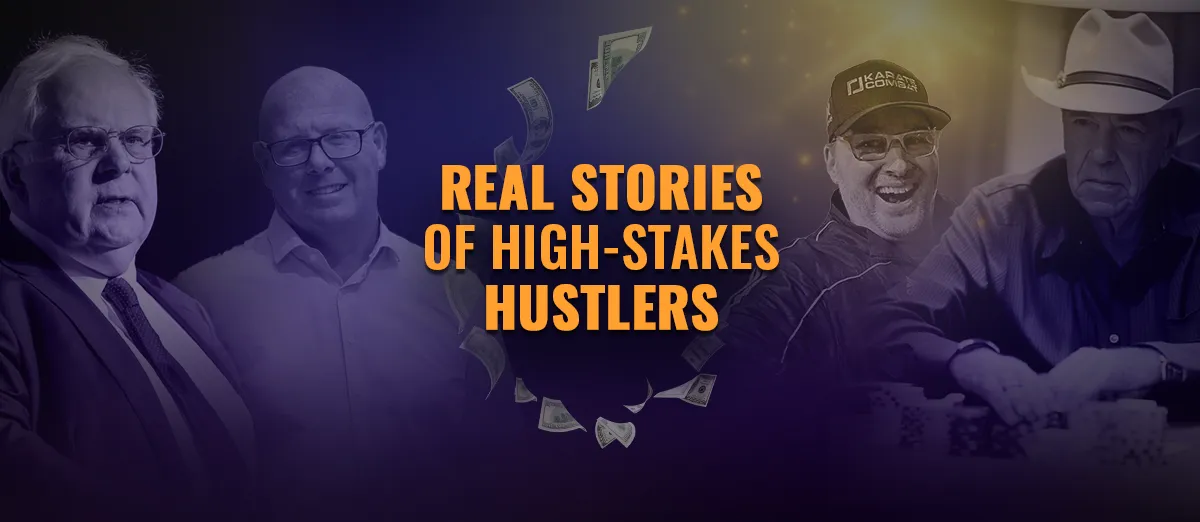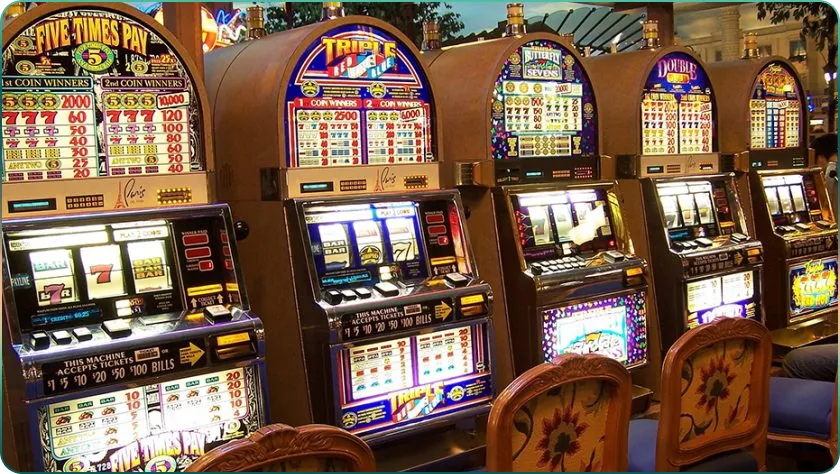All or Nothing: Fred Smith Gambling Story, FedEx, and the Entrepreneurs Who Gambled It All

What do a cargo airline, a cowboy-hat-wearing poker legend, and Walt Disney have in common? They all went all-in when the stakes were sky-high. From blackjack tables to boardrooms, these are the wildest true stories where business, gambling, and bold bets collide – real moments when risking it all wasn’t just a metaphor, it was the only option. Some walked away as legends. Others, not so lucky.
1. Fred Smith: Where Fortune Favors the Fearless
In 1973, Fred Smith had a problem. His fledgling company, Federal Express, was almost out of cash. With just $5,000 in the bank and a $24,000 fuel bill due on Monday, Smith did something that sounded more like a scene from a Hollywood heist film than a founder’s playbook: he flew to Las Vegas, took FedEx’s last five grand to the blackjack tables, and won $27,000. That single weekend gamble bought the company just enough time to keep the planes in the air. Within a few years, FedEx was profitable. Today, it’s worth more than $60 billion.
It’s one of the most audacious stories in corporate folklore, an example of a bet saving what would become a global empire. The Fred Smith gambling story sounds like the kind of myth you’d expect to be overblown or apocryphal, but Smith himself confirmed the tale in multiple interviews. His blackjack hail Mary stands as a rare but electrifying example of what happens when an entrepreneur’s appetite for risk extends all the way to the casino floor.
But Smith is not alone. While his story is now the stuff of legend, his trip to the Vegas blackjack tables is not the only moment when founders, business owners or creative visionaries have gone beyond spreadsheets and venture capital, risking real money at the tables, in poker rooms, or on bets most of us would never dare make. Some were wild successes. Others served as cautionary tales. But all of them, like Smith’s night in Vegas, show just how thin the line can be between desperation and genius.

2. Doyle Brunson: A Publishing Empire Bankrolled by Poker
Doyle Brunson is best known as one of the most iconic figures in poker history, a ten-time World Series of Poker (WSOP) champion whose cowboy hat and gravelly drawl became as synonymous with the game as a deck of cards. But fewer people know that Brunson wasn’t just playing poker to win hands; he was playing to build an empire. And unlike many entrepreneurs who rely on venture capital or bank loans, Brunson used cold, hard poker winnings to bankroll his business ventures, including what would become one of the most influential publishing projects in gambling history.
In the late 1970s, poker was still widely dismissed by the mainstream as little more than backroom hustling. It certainly wasn’t seen as a game of skill. Brunson, already a seasoned player with a fierce reputation, wanted to change that perception, to share the strategic depth of the game he loved. Using proceeds from his high-stakes cash game exploits, he self-funded the publication of Super/System, a dense, no-nonsense poker strategy manual that pulled back the curtain on how professionals actually played the game. The book was radical not just for its content, but for the very idea that a professional player would openly share trade secrets that had previously been guarded like gold.
Super/System didn’t just sell, it exploded. It became the go-to guide for aspiring pros and helped push poker into a new era of legitimacy. More importantly, it laid the foundation for Brunson’s publishing company, which went on to produce poker literature, sponsor players, and shape the evolution of poker culture in the years that followed.
In this sense, Brunson wasn’t just a gambler; he was an entrepreneur who used his winnings to fund a project that would influence generations. While building himself a multimillion-dollar business through poker, he also changed the way poker was seen around the world.
3. Nick Leeson: The Rogue Trader Who Gambled with Everything
If Fred Smith’s blackjack table triumph is the ultimate entrepreneurial gamble-gone-right, Nick Leeson’s story is the cautionary tale on the other side of the coin. Leeson didn’t place his bets in a casino, but in the derivatives markets of Asia, where he took high-risk financial positions that would eventually bring down one of Britain’s oldest and most prestigious banks. While Leeson wasn’t a founder, his story represents a different kind of gamble: one taken not in pursuit of vision or innovation, but to hide failure. The consequences were catastrophic.
In the early 1990s, Nick Leeson was a young and ambitious trader working for Barings Bank, then a 233-year-old institution known for its conservative financial approach and storied history. Sent to Singapore to manage the bank’s futures trading on the Singapore International Monetary Exchange (SIMEX), Leeson was supposed to be running a back-office operation. Instead, thanks to lax oversight and poor internal controls, he managed to trade on the bank’s behalf with little scrutiny.
When some early trades went south, Leeson began placing increasingly aggressive bets to win back the money, a strategy eerily similar to that of a gambler chasing losses. Rather than reporting the mounting failures, he buried them in a secret account, the now-infamous “88888”. At one point, he was betting on the Nikkei index rebounding after a downturn, and when the 1995 Kobe earthquake hit, sending the Japanese market into a tailspin, it was the final nail in his coffin.
By the time the truth emerged, Leeson had racked up £827 million in losses, more than twice the bank’s available capital. Barings collapsed almost overnight, bought for £1 by ING and dissolved into financial history. Leeson fled but was eventually caught and imprisoned. He served four years in a Singaporean jail before returning to the UK, where he later became a public speaker and writer, reflecting on the psychology of risk and failure.
Leeson’s story – which was turned into a 1999 film called Rogue Trader starring Ewan McGregor – exemplifies how gambling doesn’t always involve cards or dice. The high-stakes trading desks of global finance can offer the same rush, and sometimes the same delusion. His downfall wasn’t due to a lack of intelligence or opportunity, but due to a gambler’s mindset unchecked by accountability. In contrast to the maverick entrepreneurs who bet on themselves to build something new, Leeson gambled to hide his mistakes and paid the price.
4. Tommy Glenn Carmichael: The Slot Machine Hacker
Tommy Glenn Carmichael wasn’t your typical entrepreneur or your typical gambler. In fact, he blurred the line between both. A former television repairman with a knack for electronics, Carmichael turned his technical skill into an underground empire in the 1980s and ’90s, raking in millions not by beating the odds, but by bending them to his will.
Carmichael’s transformation began in Tulsa, Oklahoma, after his repair shop went under. With little money and few prospects, he was introduced to a device known as the “top-bottom joint”, a tool that could exploit the inner workings of land-based slot machines. Not content with simply using the tool, Carmichael reverse-engineered the top-bottom joint and improved it for his own gain. What followed was a decade-long spree of slot machine manipulation that spanned the US, during which Carmichael and a rotating crew of collaborators defrauded casinos out of untold sums, sometimes hitting several venues in a single night.
Carmichael may have been a cheat, but he was also a businessman. He turned his exploits into a shadow industry, manufacturing and distributing his custom-built cheating devices to a network of fellow hustlers. This black-market operation thrived for years, effectively turning gambling into a supply chain business, and Carmichael’s tools were so advanced that they forced slot machine manufacturers into a constant game of technological catch-up.
Eventually, Carmichael was caught and served time in prison. But his story didn’t end there. After his release, he switched allegiances, becoming a consultant for the very industry he had once exploited. Leveraging his intimate knowledge of machine vulnerabilities, he began working with slot manufacturers to develop tamper-proof systems and security countermeasures. What began as a criminal enterprise funded by rigged jackpots eventually evolved into a legitimate business offering security solutions to prevent the very kinds of cheats he had perfected.
Carmichael’s journey is a story of crime and redemption, but it’s also a case study in the strange overlap between innovation and illegality. His path from slot machine hacker to trusted industry consultant highlights a peculiar truth: in some rare cases, gambling doesn’t just fund business; it reveals minds capable of rewriting the rules. By beating the system, Carmichael helped reinvent it from the inside out.

5. Phil Hellmuth: The Brand of Poker
Phil Hellmuth is one of the most successful poker players in history and one of the most recognizable. With a record-breaking 17 World Series of Poker (WSOP) bracelets and a reputation for theatrical outbursts at the table, Hellmuth took the traditional image of a gambler and turned it into a business persona. In doing so, he turned gambling into one of the most successful business ventures in the history of card games.
Nicknamed “The Poker Brat” for his emotionally charged behavior and unapologetic bravado, Hellmuth quickly realized that his polarizing personality was marketable. While many poker professionals let their winnings speak for themselves, Hellmuth leaned into showmanship. He transformed his on-table fame into an off-table brand, launching a range of ventures that turned his gambling success into business capital.
Among the most notable was his Poker Brat clothing line, merchandise aimed at fans who embraced both the bravado and the lifestyle of high-stakes poker. It wasn’t haute couture, but it didn’t need to be. Like his persona, the brand was loud, recognizable and very sellable. Hellmuth also created training materials and poker strategy products, aimed at casual players hoping to capture even a fraction of his success. DVDs, books, and branded mobile apps followed, all trading on his name and record.
Sponsorship deals rolled in, too, as online poker rooms within top USA online casinos and gaming brands sought to capitalize on his fame. For years, Hellmuth served as the public face of Ultimate Bet, one of the early giants of online poker. Even after that company’s fall from grace, his reputation as one of poker’s most (in)famous characters endured. Media appearances – from reality shows to poker commentary gigs – further blurred the line between professional player and entertainment personality.
What makes Hellmuth’s case remarkable is that his business ventures weren’t separate from his gambling career, but a direct extension of it. The winnings funded the ventures, and the ventures reinforced the mythos of the man himself, creating a self-sustaining loop of fame and fortune. In that sense, Hellmuth didn’t just win at poker; he bet on his own persona and built a business empire from it. He was one of the game’s most recognizable players, but also a brand that helped define its modern era.
6. Walt Disney: Betting His Mortgage on Snow White
Today, Disney is a multibillion-dollar empire synonymous with fairytales, cartoon mice and talking toys. But in the 1930s, Walt Disney was a man on the brink. He was a visionary, but he was also seen by many as foolish. His gamble? A full-length animated feature film at a time when such a thing had never been done before. “Disney’s Folly,” as it was nicknamed by industry insiders, became Snow White and the Seven Dwarfs, and the bet that transformed Disney from a small-time animator into one of the most influential entrepreneurs of the 20th century.
The idea of a feature-length cartoon was considered laughable. Cartoons were for short reels, slapstick gags, and children’s matinees, certainly not the kind of fare that could hold adult attention for more than ten minutes. Worse still, the idea of investing serious money into such an unproven format was deemed irresponsible by bankers, advisors, and even some of Disney’s closest collaborators. Walt pushed ahead anyway.
When Disney ran out of funds midway through production, rather than pull the plug, he mortgaged his own home to keep the project alive. It was a personal, financial, and reputational risk of the highest order. Had the movie flopped, Disney would have lost his house, his studio, and almost definitely his place in the film industry. This was not a calculated investment, but a desperate last-ditch attempt to save his company.
But when Snow White premiered in 1937, it was met not with ridicule but rapturous applause and acclaim. The film was a runaway success, earning more than $8 million at the box office during the Great Depression (the equivalent of over $150 million today). It revolutionized animation, proved that cartoons could be art and commerce, and set a template for Disney’s success in the decades to come.
Crucially, the profits from Snow White funded the construction of a new, state-of-the-art studio in Burbank, laying the foundation for future hits like Pinocchio, Fantasia, and eventually Disneyland. What had once been mocked as “Disney’s Folly” became one of the most successful business bets of the century.
Walt Disney didn’t walk into a land-based casino or sit down at a poker table, but he did make a wager, in the most literal sense, with everything he had. And in doing so, he changed the future of entertainment forever.
7. Jack Binion: A High-Stakes Bet on the World Series of Poker?
In the early 1970s, Las Vegas was a city of neon, vice, and spectacle. But poker wasn’t the star of the show. The game lived mostly in smoky backrooms and casino side tables, far from the glitz of roulette wheels and showgirls. That began to change thanks to Jack Binion, the son of casino owner Benny Binion, who took a major – and possibly apocryphal – financial gamble to ensure the future of the game’s most iconic tournament: the World Series of Poker (WSOP).
The widely told (though never fully verified) story goes like this: in the formative years of the WSOP, Jack Binion was so committed to making poker a spectacle that he borrowed heavily against casino revenues to fund the tournament’s prize pool and operations. These were not minor sums: Binion is said to have secured high-risk loans or diverted profits from Binion’s Horseshoe Casino to keep the WSOP afloat. At a time when poker drew little mainstream interest and the event itself barely filled a room, it was a brazen vote of confidence in a future that few others could see.
While the details remain murky, what’s indisputable is the outcome. Binion’s gamble worked. As the WSOP slowly gained traction through the 1970s and 80s – helped along by colorful characters like Doyle Brunson, Amarillo Slim, and later Johnny Chan – it began to attract both media attention and crowds. The tournament became a fixture on the poker calendar, and the Horseshoe reaped the rewards, solidifying its legacy as the home of high-stakes poker.
Binion's vision was to elevate poker from a hustler’s pastime into a spectator sport, and he knew that to do that, the WSOP needed to look and feel important. The early years were a financial black hole, but with enough patience and investment, the tide turned. By the time Chris Moneymaker won the WSOP Main Event in 2003, sparking the so-called “poker boom”, Binion’s once-speculative tournament had become a multi-million dollar media franchise.
Whether or not the rumors of Binion’s loan-backed gamble are entirely true, they underscore a deeper truth about entrepreneurship in the gambling world: sometimes, betting on the games themselves isn’t enough. You have to bet on the idea that others will one day want to play – and watch – just as much as you do.





Review this Blog
Leave a Comment
User Comments
comments for All or Nothing: Fred Smith Gambling Story, FedEx, and the Entrepreneurs Who Gambled It All